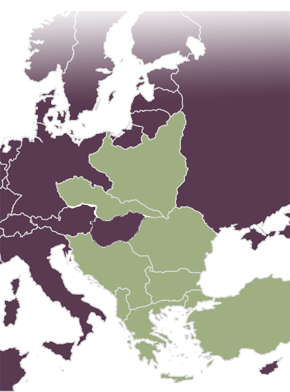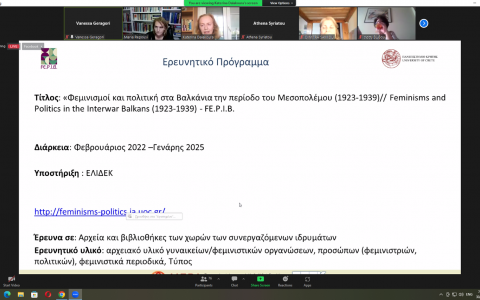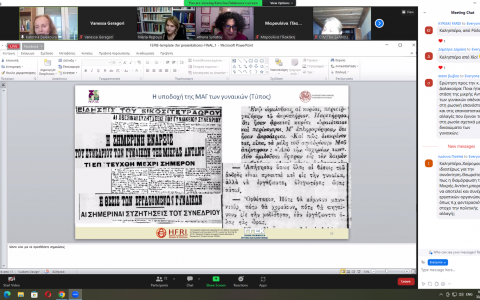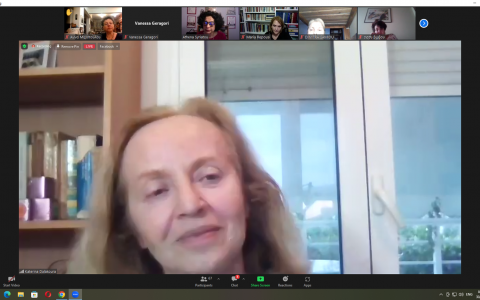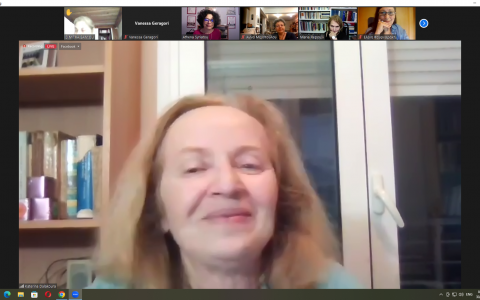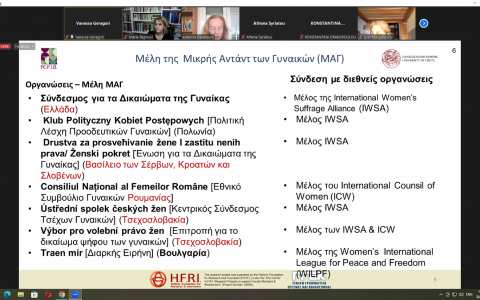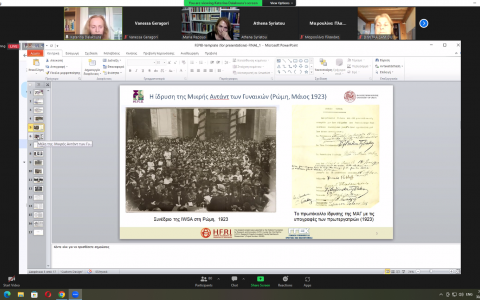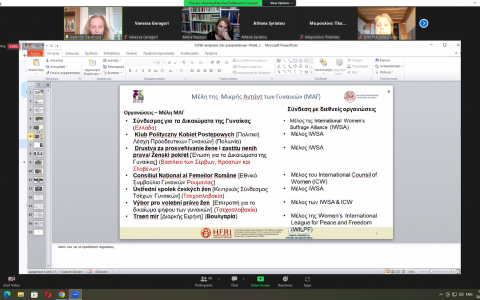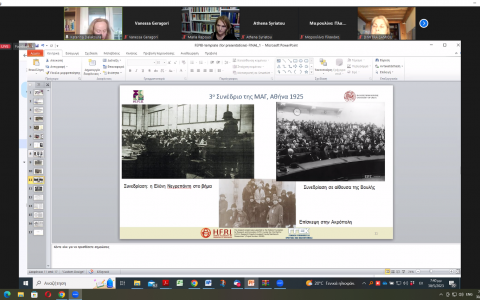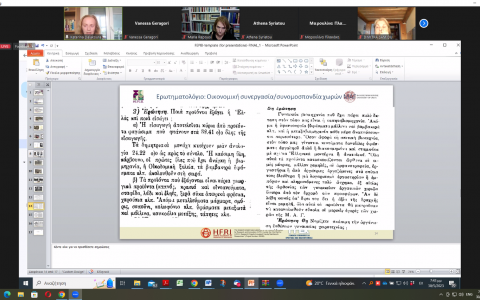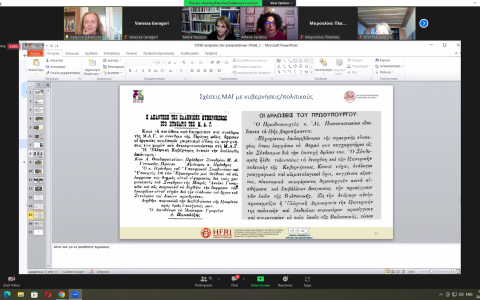Feminisms and Politics in the Interwar Balkans (1923-1939)
Katerina Dalakoura, Associate Professor, University of Crete, participated in the 2nd cycle (2022-2023) of the on-line series of presentations and discussions entitled “Forum on Women’s and Gender History”, organized by the Historians for the Research in Women’s and Gender History (HRWGH), member of the International Federation for Research in Women’s History (IFRWH).
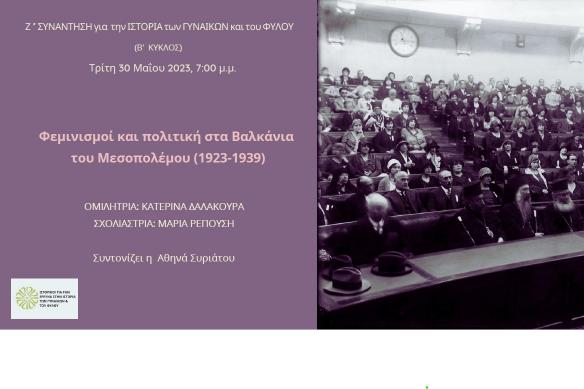
In her speech, Katerina Dalakoura presented the research project "Feminisms and politics in the interwar Balkans (1923-1939)" [FE.P.I.B.], focusing on the main research questions and, in particular, on the relationship between the objectives of the inter-Balkan and (partly) Central European feminist associations and collaborations explored and the politics and diplomacy practiced in the Balkans in the interwar period. The establishment of the Little Entente of Women (LEW) (1923-1938[?]), the most important cooperation of feminist organizations in the region, which involved organizations from Greece, Bulgaria, the Kingdom of Serbs, Croats and Slovenes, Romania, Czechoslovakia and Poland, was taken as an example for the discussion of the aforementioned relationship. The position supported by Katerina Dalakoura was that the creation and objectives of this regional Balkan/Central European association were deeply political, linked to the political challenges of the period in the region and intersected with the foreign policy of the respective countries. The arguments presented in support of this position were drawn from the historical context in which the Little Women's Entente was born, the rhetoric of the pioneers on the aims of the endeavor, the agenda of the LEW conferences, and the relations with governments and international organizations.
Maria Repousi, Professor Emeritus on History and History Education, Aristotle University of Thessaloniki was the discussant, and Athena Syriatou, Assistant Professor in Modern and Contemporary European History, Democritus University of Thrace, moderated the interesting and long discussion which followed the presentation. Eleni Fournaraki and Dimitra Samiou, members of the FE.P.I.B. research team, participated in the discussion too.

